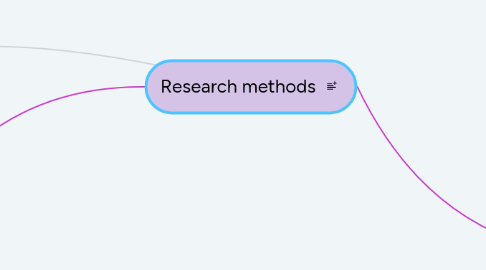Research methods
저자: Rama Mahdavi

1. Qualitative Qualitative research involves collecting and analyzing non-numerical data (text, video, or audio) to understand concepts, opinions, or experiences. Also its more in depth.
2. True field experiment: Manipulated by the researcher and its conducted in real life .
3. True laboratory experiment: Manipulated by the researcher, conducted in laboratory.
4. Validity
5. Internal
6. External
7. Construct
8. population generalizability ( to other people )
9. Ecological generalizability ( to other situations )
10. construct generalizability ( to theory )
11. 1) To what extent is the change in DV caused by IV? 2) credibility
12. New Topic
13. quantitative The process of collecting and analyzing numerical data. Also it operates with variables. And it has some characteristics that should be operationalized.
14. Experiment This experimental studies consist variables. Independent variable (IV) and dependent variable (DV). the IV is manipulated by the researcher and the DV is expected to change as the IV is changed.
15. Correlational experiment In this type there is no variables. Two or more variables are measured and the relationship between them is mathematically quantified. They usually use linear graphs for it.
16. Independent measure design It involves random allocation of participants into groups and a comparison between these groups.
17. Descriptive studies In descriptive studies relationships between variables are not investigated, and the variables are approached separately. Descriptive studies are often used in sociology.
18. Repeated measure design: This study is used when the goal is to compare conditions rather than groups of participants. the main point in this design is that the order effect matters and it can sometimes change the result.
19. Matched pairs design: this design is similar to independent measures. The only difference is that instead of completely random allocation, researchers use matching to form the groups.
20. type of experiments
21. Natural experiment: Manipulated by the nature and its conducted in real-life.
22. Quasi-experiment: Not manipulated; pre- existing difference. Its conducted in laboratory or in real-life


